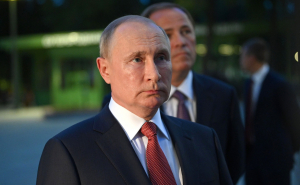
Putin’s populist pre-election handout to pensioners & soldiers

Russian President Vladimir Putin last weekend said the government would make one-off financial payments to pensioners and soldiers. This comes less than a month before parliamentary elections — and as the authorities look to give people reasons to vote for the ruling United Russia party.
- Putin unveiled the one-off 15,000 ruble ($205) payment to military personnel and 10,000 ruble ($137) payment to pensioners at a meeting with United Russia activists Sunday. His explanation for this step was that an annual 1,000 ruble increase in pensions was being negated by inflation.
- The extra money for pensioners and soldiers will сost the state about 500 billion rubles.
- For most pensioners, 10,000 rubles will be very welcome — the average old-age pension for those not in employment is 17,500 rubles a month. And, in effect, it will compensate for a fall in the real-term value of pensions in recent years. The fact is that, in real terms, pensions are now worth 2 percent less than their 2014 peak — and have started to fall again this year. Worse still, the pension-to-wage ratio is deteriorating. Military salaries were de facto frozen in 2019.
- From an economic point of view, payments to pensioners and servicemen — like those to families with school-age children announced last month — could drive up inflation. But the Kremlin is calculating they will help increase the vote for United Russia in September parliamentary elections. Despite the support of Putin, United Russia’s fortunes have waned in recent years and one recent poll suggested its popularity was at a 13-year low.
- With these handouts to pensions and soldiers, the Kremlin has managed to offer one-off financial bonuses to roughly half the electorate — and all the major social groups likely to vote for United Russia.
Why the world should care: The Kremlin is doing everything possible to insure itself against unpleasant electoral surprises. And September’s parliamentary vote is already one of the most tightly-controlled in post-Soviet Russia: protests are banned (because of the pandemic) and new laws on postal votes and polling stations offer more opportunities for vote rigging than ever before.



